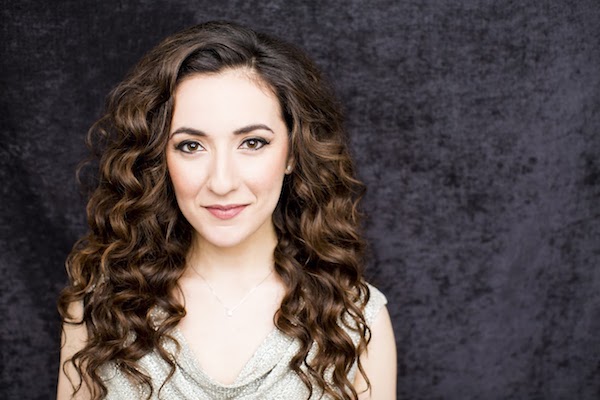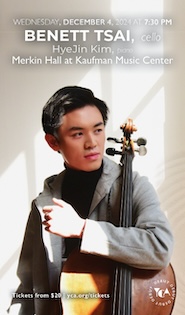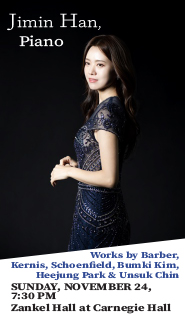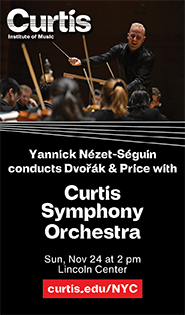Soprano Feola lifts a mixed all-Mozart night at Mostly Mozart

Rosa Feola performed a pair of concert arias Friday night at the Mostly Mozart Festival. Photo: Todd Rosenberg
There’s a school of thought in classical music performance that says conducting from the piano is inherently flawed—one musician with two responsibilities will by definition be unable to adequately fulfill each of them.
Friday night’s Mostly Mozart concert in David Geffen Hall featured Christian Zacharias conducting the entire first half from the piano, the second, standing in front of the orchestra. The contrast between the two was a strong argument in favor of that proposition.
This Mostly Mozart program was all Mozart; along with Zacharias playing the composer’s Piano Concerto No. 25, the evening featured soprano Rosa Feola in her festival debut. She sang two Mozart concert arias, “Ch’io mi scordi di te” and “Bella mia fiamma,” with the Symphony No. 38, “Prague,” finishing everything up.
When the conductor was at the piano, nothing was ever bad in the first half, but neither was anything particularly distinctive. The piano concerto was merely pretty, a kind of pleasantly bland pastel. Zacharias was clear and accurate for the most part–uneven sixteenth-note runs apart–but displayed no particular insight.
Nor did the orchestral playing. Phrases were a shade too legato, and the notes–especially in the violins–had no shaping. Nothing was lazy, but neither was there the kind of verve that should be a built-in feature of Mozart’s music. There was an overall heaviness without concomitant substance, reflected in (or from) Zacharias’s touch on the keyboard, which produced an incongruously thick texture. His own first- movement cadenza was appropriately Mozartian ornamented by a few personal quirks in the harmonies and phrases.
The piano was also a problem in “Ch’io mi scordi di te.” The instrumentation includes the keyboard, which carries on an intimate, recital-like dialogue with the singer while the orchestra makes a background landscape. The playing was sharper than in the concerto, but the balances were off—with the piano so much louder than the orchestra they could have been in different rooms.
Zacharias’s playing also frequently drowned out Feola, which was a shame. The Italian soprano sang with the kind of poise that felt like an earthy inhabitation of the character—in this aria a lover lamenting her broken heart.
Feola’s easy luster, excellent vibrato, and clear, natural articulation were impressive and enjoyable when they could be heard. Someone should have thought of putting the lid back onto the piano.
The second half opened with “Bella mia fiamma,” which has no piano accompaniment, and the concert was transformed. The lighter and drier instrumentation gave Feola plenty of space, which she filled with lovely, elegant, substantial singing. One could hear her at low dynamic levels, where she had a penetrating, haunting quality. Her musical emphasis on the repeated phrases for “o cara” and “addio per sempre” was artful and quite touching.
The “Prague” Symphony was well done, with the kind of light and fluid (but not unserious) touch that was missing from the concerto. Zacharias drew out the long introduction in the opening movement with the kind of patience that made one want to linger on the music. His second movement tempo was Allegretto, not Andante, and that not only had charm but made the music more silvery and striking than usual, though no less expressive. The tempo was again excellent in the final movement, with an articulate forward motion that honored Mozart’s intellectual and emotional agility.
This program will be repeated 7:30 p.m. Saturday. MostlyMozartFestival.org




Posted Aug 05, 2018 at 5:14 pm by CastaDiva
It was Feola’s expressive singing of those two arias that was the evening’s highlight at the performance I attended on Sat. evening. The piano concerto sounded bland, but the Prague Symphony was better, and the flutes in the final movement were marvelous.
Posted Aug 05, 2018 at 8:37 pm by Yige
I was in the audience for both concerts sitting in very different sections. Neither night did I feel that Signora Feola was drowned out at any second. True that she doesn’t have a large voice, but the projection is good enough to make it aways keep a presence. It wasn’t a problem at all to hear her. I wonder where the reviewer sat.